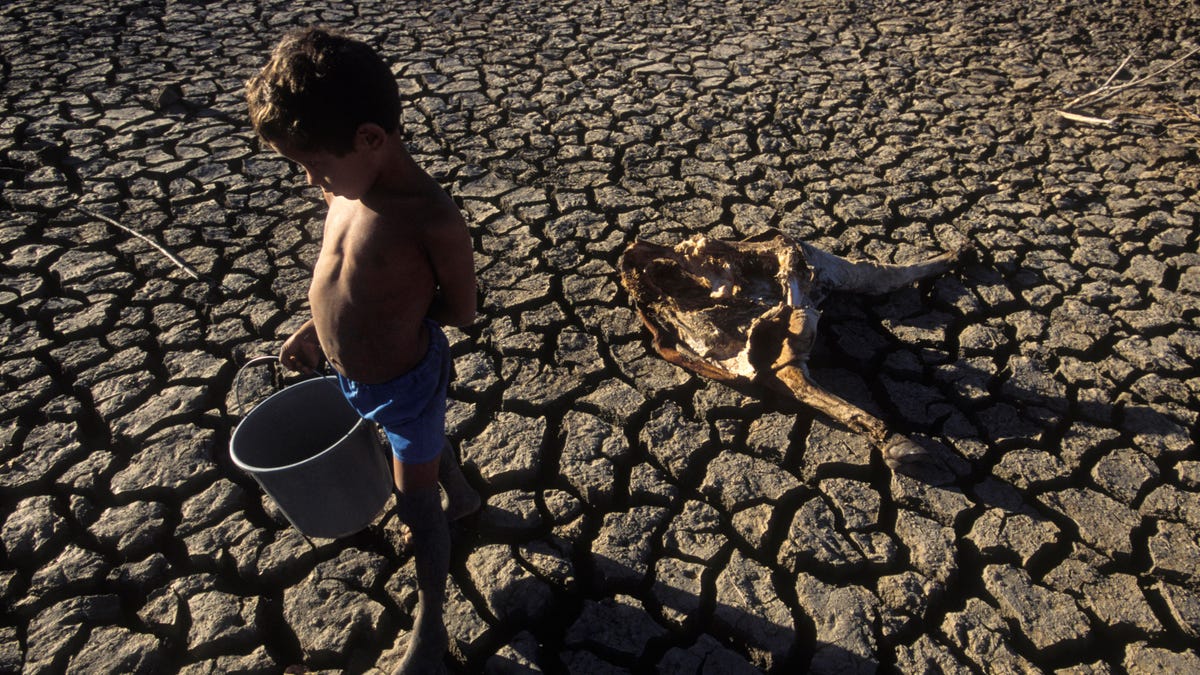'Unprecedented' action needed to survive global warming, UN says
The world can only afford to get 0.5 degree warmer. And even then, a UN report says, we will still face the serious effects of climate change.

1.5 degrees.
That's the most our planet can take when it comes to increased temperatures due to global warming. And we've already reached the 1 degree Celsius mark.
Even if we limit global warming by meeting the targets set by the Paris climate accord, stop our reliance on fossil fuels and make unprecedented changes across all aspect of society, the world will still face the serious impacts of climate change. That's according to an alarming report released on Sunday by the UN's Intergovernmental Panel on Climate Change (IPCC), which outlines the effects of limiting global warming to 1.5 degrees and what's at risk if that temperature pushes any higher.
And to limit global warming to 1.5 degrees, the report's authors says we'll need to make "rapid and far-reaching" changes.
NASA climate data shows the difference in global temperatures between 1884 (top) and 2017 (bottom). The dark blue areas indicate cooler-than-average temperatures with dark red showing warmer than average.
The 1.5 degree figure is the target agreed to under the 2015 Paris Climate Agreement (it refers to an increase in global warming of 1.5 degrees above preindustrial levels). But while we've set the goal, the IPCC says the heavy lifting to reach that goal still needs to be done. (And the United States, the world's second-largest producer of carbon dioxide emissions, has already announced its intention to withdraw from its obligations under the Paris agreement.)
To meet the Paris target, the IPCC report says human-caused carbon dioxide emissions would need to fall about 45 percent by 2030 (compared to 2010 levels) and reach "net zero" around 2050. At that point, the report says any remaining emissions would need to be offset by removing CO2 from the air.
"Limiting warming to 1.5 degrees is not impossible, but will require unprecedented transitions in all aspects of society," said Hoesung Lee, chair of the IPCC. "There are clear benefits to 1.5 degrees Celsius compared to 2 degrees or higher. Every bit of warming matters."
If we fail, and temperatures edge toward a 2-degree increase, the report paints a dire picture for humankind, with "challenging" impacts on human health and ecosystems.
That includes:
- Widespread temperature increases and substantial warming of "extreme hot days"
- Heavy rainfall events and increased flooding risks
- 10-centimeter increase in sea levels (compared to 1.5-degree increase)
- Warming oceans and a complete loss of arctic sea ice at least once a decade (compared to once over 100 years with a 1.5-degree target)
- 99 percent loss of coral reefs
But even if the planet warms just another 0.5 degree from our current levels, we will still face serious ramifications.
Higher temperatures, a 70 percent to 90 percent loss of coral reefs and increased sea temperatures and ocean acidification will still all be environmental factors to contend with, even under the Paris targets.
And according to some experts, even the steps being taken under the Paris agreement might not be enough.
"The window on keeping global warming below 1.5°C is closing rapidly and the current emissions pledges made by signatories to the Paris Agreement do not add up to us achieving that goal," said Andrew King, the Climate Extremes Research Fellow at the ARC Centre of Excellence for Climate System Science at University of Melbourne.
More than 90 authors from 40 countries worked on the IPCC report, referencing 6,000 scientific studies. But the overwhelming consensus from those who compiled the report and other scientists around the world is that we have reached the critical turning point.
"The report highlights the urgent need for rapid reductions in greenhouse gas emissions over the next 10 to 20 years, to avoid the impacts of 1.5C global warming," said Jatin Kala, a lecturer at Murdoch University and one of the report's lead authors.
"The time for action is right now."
You can read the full report here.
Mel Chin's Augmented Reality Artwork shows NYC underwater in statement about climate change
See all photosRebooting the Reef: CNET dives deep into how tech can help save Australia's Great Barrier Reef.
Fight the Power: Take a look at who's transforming the way we think about energy.

